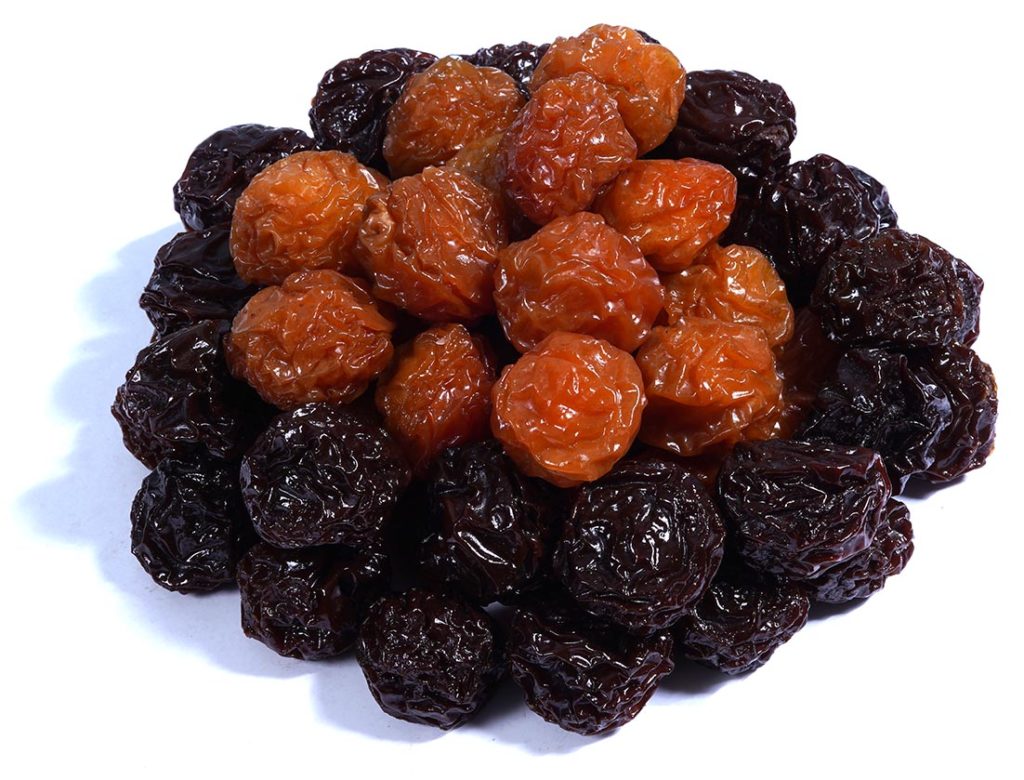
BENEFITS OF PLUMS
The average lengths of plums vary between 3cm and 6cm around the world. their tastes varies from sour to sweet and they are available in different colors including yellow, green, red and purple. Consuming plums play a significant role in human health by preventing high blood pressure, controlling blood sugar and preventing cancers, cardiovascular and gastrointestinal diseases, and reducing the fat used in confectionary.
Plums are mainly consumed fresh; however, it can be added to cakes, salads and dishes or consumed as plum compote and plum jam.
Plum juice is recommended after sleep as a “breakfast panacea” for body detoxification and rejuvenation.
Plum Effects on Body Health
- Plum is a good source of antioxidants. This fruit contains a good amount of phenolic compounds and β-carotene that neutralizes oxygen free radicals by its antioxidant effect. Oxygen free radicals exert destructive effects on human body, because these free radicals cause fat deposits in arteries and blockage of arteries through lipid oxidation. These processes are among the main factors that contribute to developing cardiovascular diseases. Another disadvantage of oxygen free radicals is DNA destruction. If DNA damage occurs, the probability of cancer cell development in the body increases. Another disadvantage of free radicals is the increased probability of osteoarthritis, which is the cause of some diseases like vascular cancer and rheumatoid arthritis. Thousands of people die each year from heart diseases and a high percentage of health care expenditures are for these diseases. Considering the effects of plums in the prevention of these diseases, the consumption of this fruit can be very effective in human health. High content of dietary fiber makes plums beneficial in preventing constipation and maintaining the health of digestive system.
- Plums are a rich source of potassium. Recent studies have shown the effect of potassium in reducing blood pressure. Since plums are low in sodium, a moderate consumption of plums is effective in controlling blood pressure.
- Another important ingredient in this fruit is fiber. Fibers slow down the absorption of nutrients, particularly sugars, and at the same time increase insulin sensitivity. Thus, plum consumption can be effective in controlling blood sugar.
- One of the most recognized benefits of plums is its effect in preventing constipation. Also, 100g of dried plums contain about 10g of sorbitol sugar, which is also laxative.
- In addition to the above effects, the fiber in plums increases the growth and proliferation of good bacterial cells in intestine. At the same time, through fiber fermentation in the gut Butyric acid is produced, which is the energy source for intestinal cells and so helps to maintain the health of the digestive system. Dry plum is a good source of iron and can help prevent anemia.
- Vegetarians and those who consume small amounts of red meat are at the risk of insufficient dietary intake and depletion of body iron reserves. Lack of iron can ultimately lead to anemia with excessive fatigue and lack of concentration are among its site effects. However, it is to note that dry plum is a good source of “plant iron”.
- Also, cooks and those who do not desire to use fat, butter or margarine in their recipes, can use dry plum puree in their recipes such as fruit cakes.
The average lengths of plums vary between 3cm and 6cm around the world.
their tastes varies from sour to sweet and they are available in different colors
including yellow, green, red and purple. Consuming plums play a significant role
in human health by preventing high blood pressure, controlling blood sugar and
preventing cancers, cardiovascular and gastrointestinal diseases, and reducing
the fat used in confectionary.
Plums are mainly consumed fresh; however, it can be added to cakes, salads and
dishes or consumed as plum compote and plum jam.
Plum juice is recommended after sleep as a “breakfast panacea” for body
detoxification and rejuvenation.
Weight 100g – 150g – 400g – 500g – 1Kg
Nutrition facts in 100g
